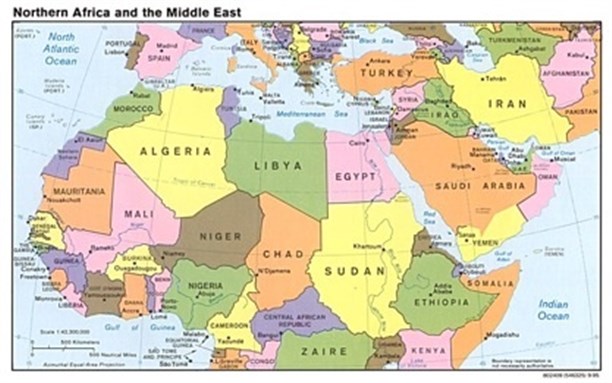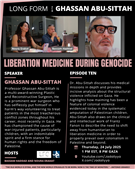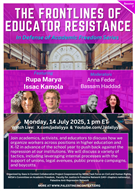Call for Proposals: The 4th Annual CSU Conference On Middle Eastern Studies
October 15-16, 2011 at Cal Poly Pomona
Recent uprisings against autocratic and dictatorial regimes in the Middle East and North Africa shattered many myths and stereotypes about Arab and Islamic societies. Led largely by youth, these movements are historic events of momentous significance. A new Middle East is in the making. Whatever the final outcome of these upheavals may be, these developments have local, regional, and global implications.
The 4th Annual CSU Conference on Middle Eastern Studies invites scholars, experts, and graduate and undergraduate students to submit papers and presentations that address and analyze these developments and place them in their historic and present context. The geographic area covered by the conference is inclusive of an expanded Middle East, from Afghanistan to Morocco.
The conference is concerned with the teaching of the Middle East. However, while the focus of the conference is recent developments in the Middle East, papers and presentations on any other area dealing with the modern Middle East will be considered, including the following research topics:
- Art, Architecture, Visual & Performing Arts
- History & Historiography
- Literature, Literary Studies & Linguistics
- Culture and Society
- Diaspora & Migration Culture
- Middle East Politics & Representations
- U.S. Foreign Policy
- Media Studies (including Film, Broadcast, Print, News, etc.)
- Economic development, Sustainability and Democratic transition
Proposals:
Proposals for complete panels will be given priority. However, the conference is also open to individual proposals.
Panel Proposals: Panel proposals should be submitted by a moderator, inviting three to four presenters to discuss a topic relevant to the themes mentioned above. The topic should be one that would benefit from diverse opinions and open discussion. Panel presentations will be limited to 90 minutes.
Paper Proposals: Exploring original research on the Middle East by one or more authors. Presentations will be 20 minutes long.
All submissions should be in MS Word and mailed electronically to:
Professor Mahmood Ibrahim
Program Committee Chair
History Department
Cal Poly Pomona
3801 West Temple Avenue
Pomona, CA 91768
mibrahim@csupomona.edu
Please include the following:
- Cover Sheet: Required for all submissions. On a separate cover sheet, list the title of the presentation, author name(s), school affiliation(s), contact person address, and audio-visual requirements. Please make a separate cover sheet for each submission.
- Abstracts: Abstract submissions should be approximately 500 words and must be in English. Abstract and full paper submissions should be sent in MS Word or PDF document format. Please include title but do not include author name(s) or school affiliation(s).
Deadlines:
Deadline for abstracts: Originally June 13, 2011, but has since been waved.
Notifications of acceptances: August 1, 2011
Conference Fees, Registration, and Accommodation:
Participants are expected to complete the registration process before September 1, 2011. Failing to send the registration fees on or before this date might result in excluding the paper from the proceedings. Registration fee is $75 for conference participants and $25 for students. An additional $25 will be charged for late registration. Accommodation is available at Kellogg West Conference Center and Hotel (Tel. +1-909-869-2222).


















